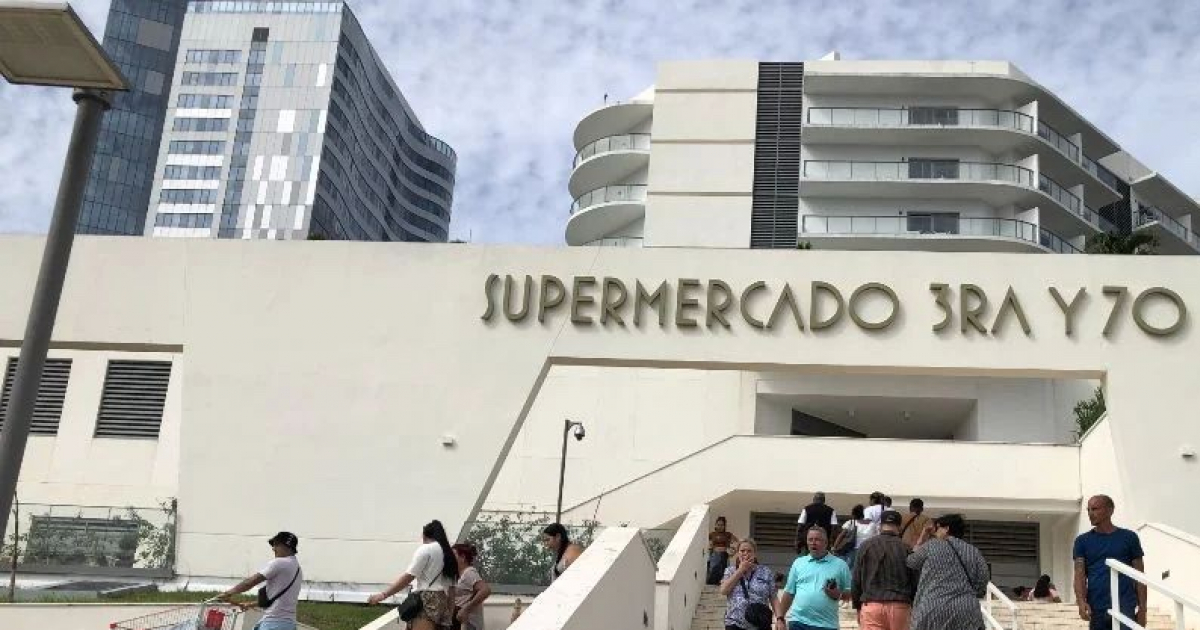
Related videos:
The official newspaper Escambray has launched a strong criticism this Thursday against the supermarket at 3rd and 70, in Playa (Havana), and against the official silence surrounding the introduction of the sale of its products in dollars and cash. "Many ears of the people are waiting for explanations," notes Sports journalist Elsa Ramos, National Prize Juan Gualberto Gómez in 2014, 2018, and 2019.
In an article titled "Partial Dollarization in Cuba: The Locks of Silence?", Ramos criticizes the "informational voids" surrounding an "opening (at 3rd and 70), which arrived unexpectedly" and has turned the online debate about dollar sales into a "searing thorn," due to the traumas that Cubans on the island (the rest of the Cubans are "enemies") carry regarding the use of the U.S. currency. This store, although it has not created the social disparities that currently exist in Cuba, makes them more visible.
According to the journalist, the dollars used for purchases at 3rd and 70 "are something else," very different from the CUC and MLC (currencies with which most salaries in Cuba were not paid). She also references the "controversial CL that has driven state enterprises and agricultural producers crazy," referring to the Liquidity Capacity for Payments Abroad. These "locks of silence," she insists, have had consequences on the streets, "where the gradual demise of the MLC is anticipated" and, as is natural, has influenced its informal exchange rate.
That said, Ramos adds that for those like her who continue to support the Díaz-Canel regime at this point, it is not about demonizing the USD if, in the best-case scenario, the dollar stores were to supply the destroyed bodegas in the neighborhoods or to sell in some state-owned store, in national currency, a package of chicken, powdered milk, or a syringe for a blood test. However, she recalls that when the MLC stores opened, it was said that the revenue would be used to supply the rest of the shops, and that never happened. Now, she assumes that the new dollar store at 3rd and 70 comes with the same promise. What is certain is that it arrives with the added drawback that change is given in candies, something that to her seems like "a complete scam to the consumer."
Those who cannot even step foot near 3ra y 70 are, unfortunately, the same individuals who have never, or rarely, been able to exchange their pesos for CUC, even though it used to cost 25 in a similar exchange rate to now; they are the same ones who have never entered a MLC store because they are far less able to access the barter rates of 1 for 250, 270 pesos or more; they are the same ones who left a pound of rice at the state store sold at a differentiated price simply because they only have a meager checkbook that makes them vulnerable, the ones registered with the Ministry of Labor, because certainly, due to inflation, scarcity, and the monetary changes of recent times, in practice many Cubans, whose salaries cannot provide even a minimal solvency, could join that army.
The article from Escambray primarily addresses the lack of information, which raises the question of whether the regime plans to open more supermarkets like the one on 3rd and 70 in the capital of Sancti Spíritus and in Trinidad, overnight and without prior explanations. "One more dollar, despite our need for it, cannot leave us a country with less," he concluded.
Filed under: